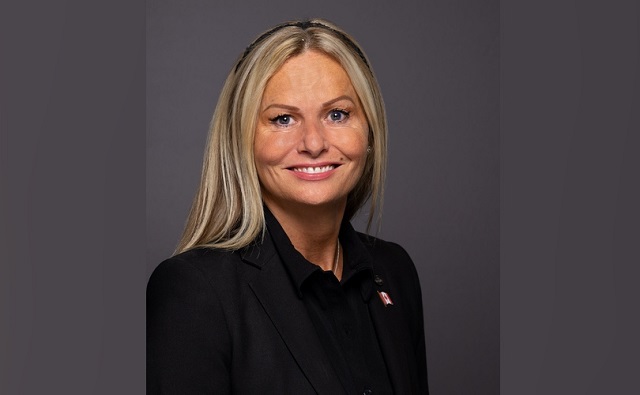National
Ontario city councillor could face thousands in legal fees after opposing ‘pride’ flag, drag shows

Pickering City Councillor Lisa Robinson
From LifeSiteNews
Pickering City Councillor Lisa Robinson could be ‘on the hook for over $20,000 in legal fees, and possibly $50,000 more if she loses’ her legal battle.
An Ontario city councillor who opposed the LGBT agenda was in court last Wednesday, when she was told she faces the possibility of being on the hook for more than $20,000 in legal fees and another $50,000 if she is not successful in her case against the against the Pickering City Council.
As noted in a legal update sent to LifeSiteNews by one of her advocates, former Conservative Party of Canada MP Derek Sloan, a judge required Pickering City Councillor Lisa Robinson and the “other side to settle on costs during the day” in court.
As noted by Sloan, “While Lisa made a reasonable offer, the other side — even though enough trial had passed to know their case is certainly not a slam dunk, they stuck to their claim for $50,000 in costs — if they win.”
“It could be they have instructions to stick it to Lisa, even if it means losing more on their side if they lose. It’s only taxpayer money after all,” he added.
Robinson is under two judicial reviews because of two integrity commissioner reports against her along with sanctions made to her from her city council.
She had applied for the judicial reviews earlier in the year. One was against the City of Pickering and the other against Principles Integrity, which investigated her after complaints were made and then said she needed disciplinary measures. Robinson is looking to have the court toss out the report and penalties that were brought against her.
Both reviews are now combined and are being overseen by three superior court judges in an Oshawa divisional court. The judges have yet to present their full findings.
LifeSiteNews reported last year that Robinson, who is a single mother, was given a 60-day pay suspension after an investigation into allegations that she advocated for “homophobic” and “transphobic” motions.
On October 23, 2023, the Pickering City Council unanimously voted to suspend Robinson’s pay over her motions opposing LGBT ideology.
Robinson came under fire after a May 15, 2023, meeting at the Durham District School Board during which she announced that she intended to propose motions banning drag queen shows and pride parades if children were present and forbidding flying the “Pride” flag on city premises.
Robinson had advocated for separate washrooms and change rooms for both men and women while having a universal space for both genders to use, citing safety concerns from the community over the situation.
Sloan noted that Robinson could be “on the hook for over $20,000 in legal fees, and possibly $50,000 more if she loses.”
Councillor’s lawyer says city trying to censor her
Robinson’s lawyer, Michael Alexander, noted as per Sloan that “all of this is clearly an attempt just to censor Lisa, and handcuff her ability to do her job.”
Sloan noted that Alexander in court made the main arguments regarding freedom of expression.
“He argued that we have a fundamental right in this country to express a minority or dissenting opinion on any issue, especially on matters of public importance that relate to government,” Sloan said.
Sloan pointed out that Alexander said, “Look what they’re doing here is saying we get a right to penalize you because we find your motions disagreeable, or offensive or they don’t jive with our own opinions and views.”
“That is clearly forbidden in Canada and I’m trying to get legal recognition for that fact.”
Sloan noted that Alexander has observed that “all of this is clearly an attempt just to censor Lisa and handcuff her ability to do her job. Many people have told me this is just a way to punish her for standing up for her beliefs.”
Automotive
Canada’s EV experiment has FAILED

By Dan McTeague
The government’s attempt to force Canadians to buy EVs by gambling away billions of tax dollars and imposing an EV mandate has been an abject failure.
GM and Stellantis are the latest companies to back track on their EV plans in Canada despite receiving billions in handouts from Canadian taxpayers.
Dan McTeague explains in his latest video.
Business
Carney government should retire misleading ‘G7’ talking point on economic growth

From the Fraser Institute
By Ben Eisen and Milagros Palacios
If you use the more appropriate measure for measuring economic wellbeing and living standards—growth in per-person GDP—the happy narrative about Canada’s performance simply falls apart.
Tuesday, Nov. 4, the Carney government will table its long-awaited first budget. Don’t be surprised if it mentions Canada’s economic performance relative to peer countries in the G7.
In the past, this talking point was frequently used by prime ministers Stephen Harper and Justin Trudeau and their senior cabinet officials. And it’s apparently survived the transition to the Carney government, as the finance minister earlier this year triumphantly tweeted that Canada’s economic growth was “among the strongest in the G7.”
But here’s the problem. Canada’s rate of economic growth relative to the rest of the G7 is almost completely irrelevant as an indicator of economic strength because it’s heavily influenced by Canada’s much faster rate of population growth. In other words, Canada’s faster pace of overall economic growth (measured by GDP) compared to most other developed countries has not been due to Canadians becoming more productive and generating more income for their families, but rather primarily because there are more people in Canada working and producing things.
In reality, if you use the more appropriate measure for measuring economic wellbeing and living standards—growth in per-person GDP—the happy narrative about Canada’s performance simply falls apart.
According to a recent study published by the Fraser Institute, if you simply look at total economic growth in the G7 in recent years (2020-24) without reference to population, Canada does indeed look good. Canada’s economy has had the second-most total economic growth in the G7 behind only the United States.
However, if you make a simple adjustment for differences in population change over this same time, a completely different picture emerges. Canada’s per-person GDP actually declined by 2 per cent from 2020 to 2024. This is the worst five-year decline since the Great Depression nearly a century ago. And on this much more important measure of wellbeing, Canada goes from second in the G7 to dead last.
Due to Canada’s rapid population growth in recent years, fuelled by record-high levels of immigration, aggregate GDP growth is quite simply a misleading economic indicator for comparing our performance to other countries that aren’t experiencing similar increases in the size of their labour markets. As such, it’s long past time for politicians to retire misleading talking points about Canada’s “strong” growth performance in the G7.
After making a simple adjustment to account for Canada’s rapidly growing population, it becomes clear that the government has nothing to brag about. In fact, Canada is a growth laggard and has been for a long time, with living standards that have actually declined appreciably over the last half-decade.
-

 Business1 day ago
Business1 day agoYou Won’t Believe What Canada’s Embassy in Brazil Has Been Up To
-

 Censorship Industrial Complex1 day ago
Censorship Industrial Complex1 day agoSenate Grills Meta and Google Over Biden Administration’s Role in COVID-Era Content Censorship
-

 Business1 day ago
Business1 day agoMystery cloaks Doug Ford’s funding of media through Ontario advertising subsidy
-

 Automotive1 day ago
Automotive1 day agoCarney’s Budget Risks Another Costly EV Bet
-

 Environment22 hours ago
Environment22 hours agoThe era of Climate Change Alarmism is over
-

 Crime14 hours ago
Crime14 hours agoPublic Execution of Anti-Cartel Mayor in Michoacán Prompts U.S. Offer to Intervene Against Cartels
-

 Aristotle Foundation14 hours ago
Aristotle Foundation14 hours agoB.C. government laid groundwork for turning private property into Aboriginal land
-

 Justice14 hours ago
Justice14 hours agoA Justice System That Hates Punishment Can’t Protect the Innocent












